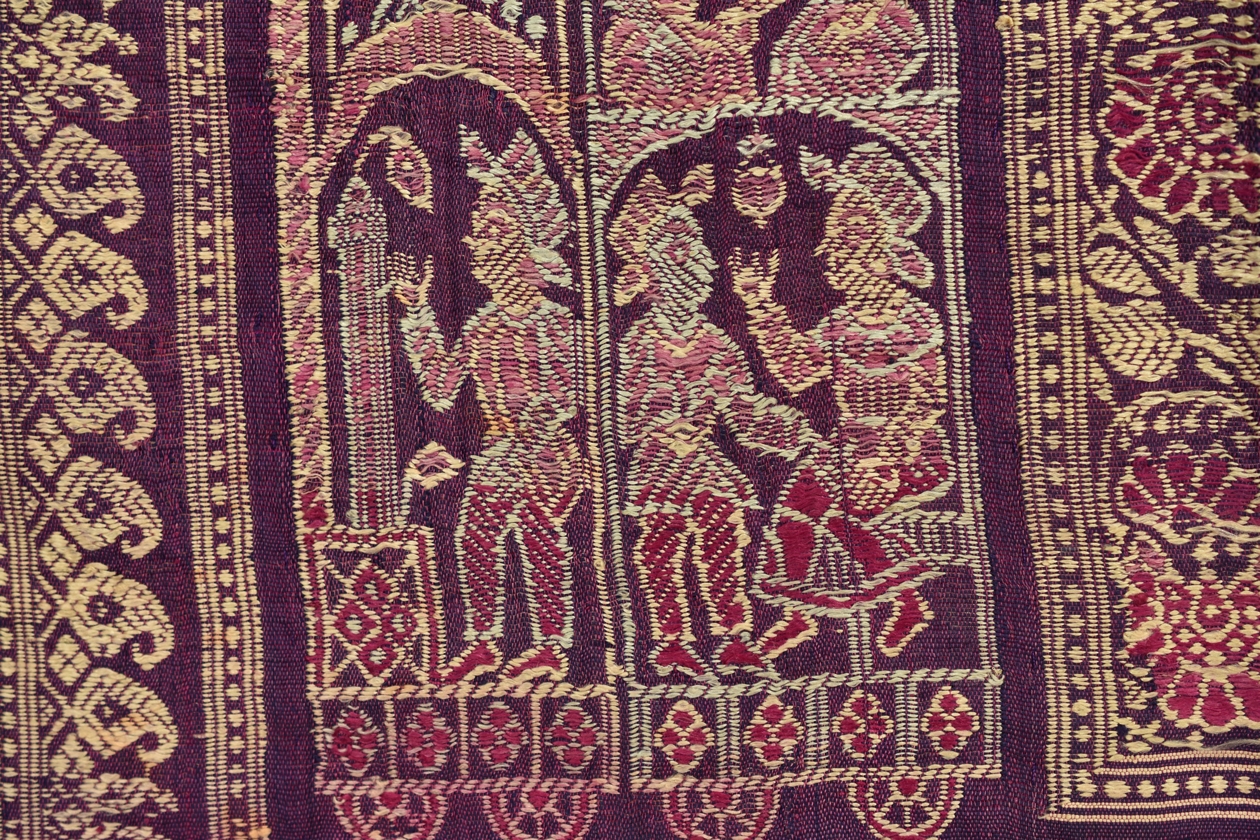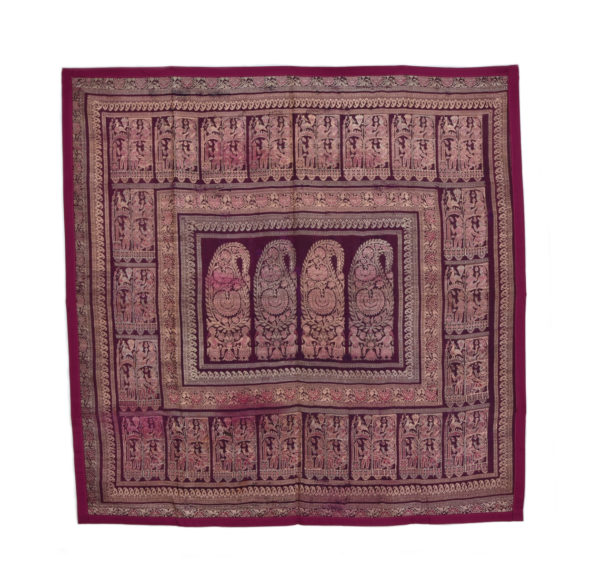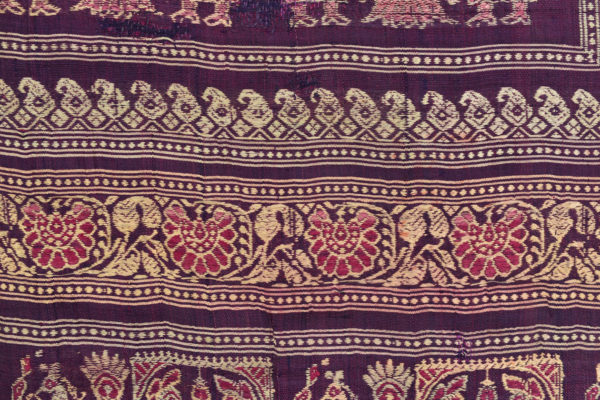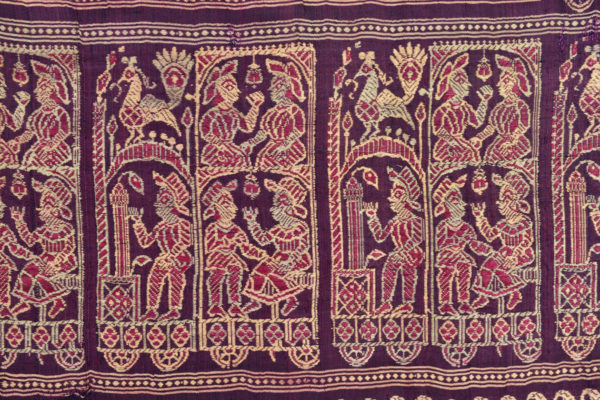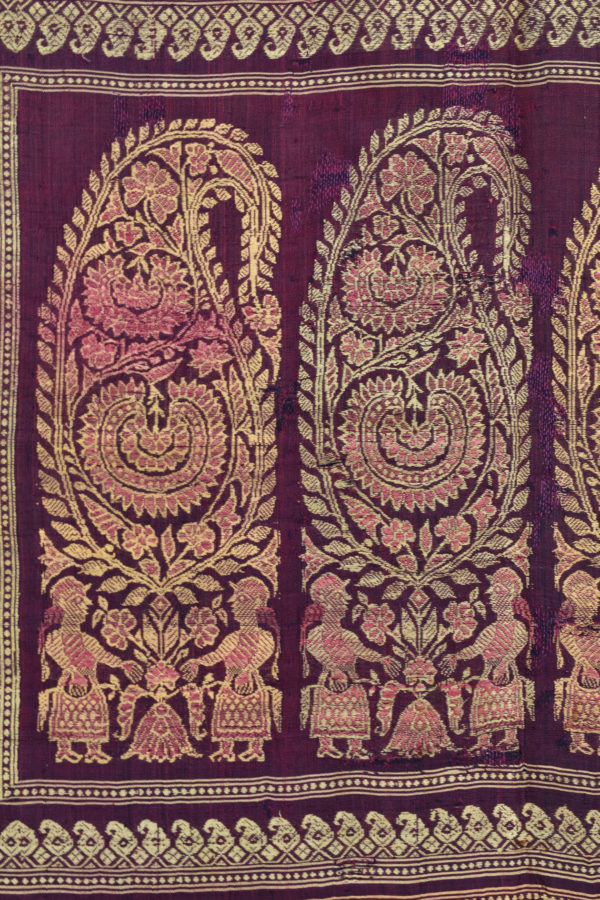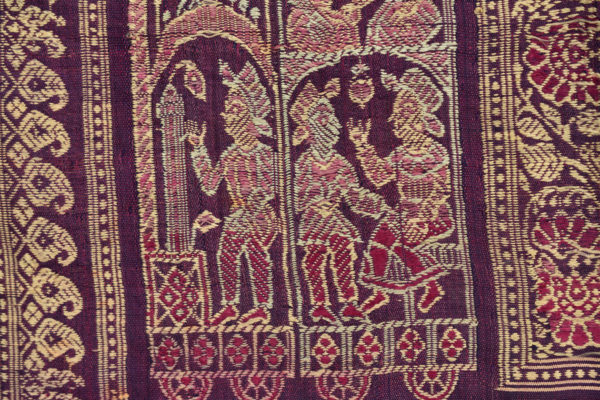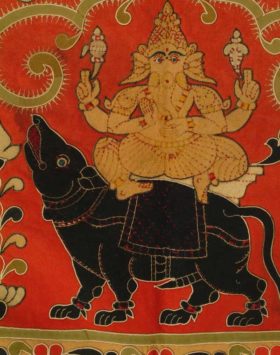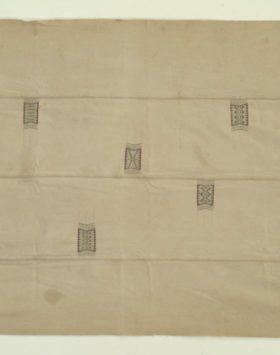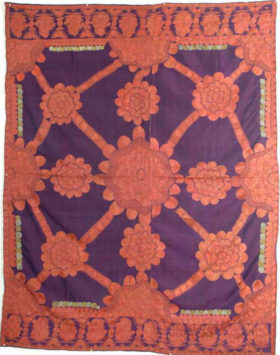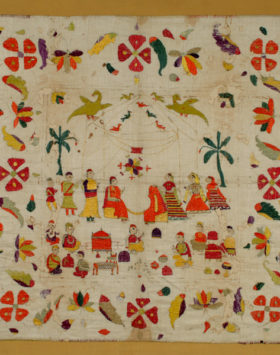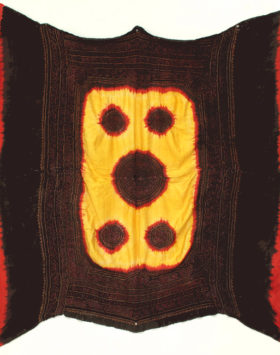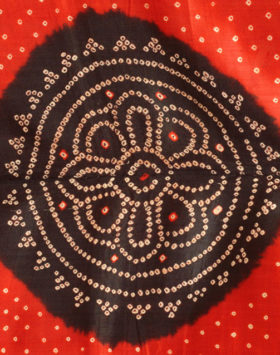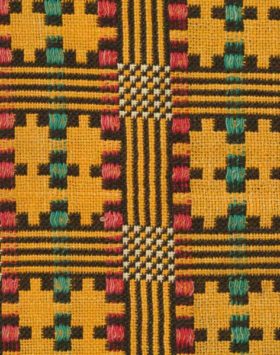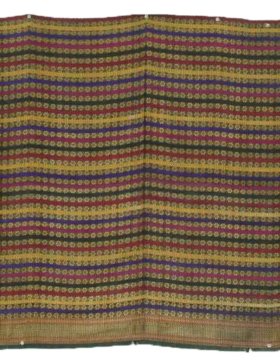Baluchari Sari End
Most weaving traditions in India originated in Gujarat on the west coast. Later on those weaving techniques spread to other parts of India for two reasons – to escape wars, famines and other calamities and because the weavers were invited by rulers in other areas to establish workshops. This migration of weavers can explain the presence of weaving structures that required drawloom technology all over the Indian subcontinent.
Baluchar saris demonstrate not only the Gujarati technology but also Gujarati motifs. Center of four botehs surrounded with multiple borders, the narrow borders floral and the wide borders populated with a mix of people and peacocks in small square compartments. These motifs reflect an aristocratic world with an interesting mix of Hindu, Muslim and European elements,giving a vivid picture of bygone Indian court life. Baluchar saris were produced and traded by the East India Company workshop in Morshidabad which may explain this amalgamation of motifs.
Circa: Late 18th Century
Origin: India
Material: Silk ground with continuous and discontinuous supplementary polychrome silk weft.
Condition: Fragmentary condition, minor dye run
Dimensions: 42" x 42"
Inventory number: TX4683
The center of this Baluchar Sari has narrow floral borders and wide borders populated with a mix of people and peacocks in small square compartments.
SOLD
